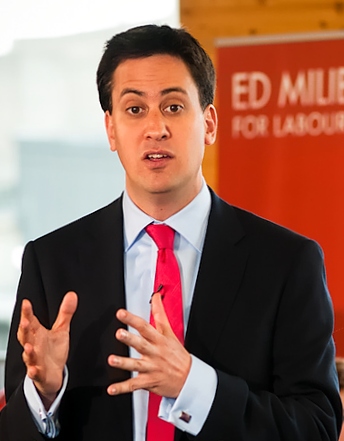UK party leader: Google takes 'extraordinary lengths' to avoid taxes

Opposition Labor party leader Ed Miliband has accused Google of going to "extraordinary lengths" to avoid paying tax on U.K. soil.
Ahead of next month's G8 summit -- where company tax avoidance is likely to become a hot topic -- Miliband plans to tell visitors at a Google event today close to London that he is "disappointed" that the tech giant pays so little tax.

"I can't be the only person here who feels disappointed that such a great company as Google...would be reduced to arguing that when it employs thousands of people in Britain, makes billions of pounds of revenue in Britain, it pays just a fraction of that in tax." Miliband will say within his speech, according to Reuters.
"So when Google does great things for the world, as it does, I applaud you, but when Google goes to extraordinary lengths to avoid paying its taxes, I think it's wrong."
British lawmakers are under rising pressure to tackle the issue of tax avoidance and the tactics used by large firms to avoid high sales and corporate taxes. In November, Google and Amazon came under the spotlight in front of the U.K.'s Public Accounts parliamentary committee, which grilled the firms on why they did not pay the 23-24 percent corporation tax rate in the U.K. Amazon admitted it operates officially out of Luxembourg where the tax rate is lower, whereas Google stipulated it pays as much tax as the U.K. requires -- and so how it operates in Europe should not be of concern.
A number of firms use tactics described by U.K. officials as "smoke and mirrors," in other words, operating subsidiaries and being officially located in countries where tax is lower, and some use offshore accounts to prevent funds being taxed when transferred overseas.
Although these methods are legal -- unlike tax evasion -- public anger is enough that a number of petitions have been started in order to try and make taxation fairer. A petition launched by independent booksellers Frances and Keith Smith demands that Amazon "pays its fair share of tax in the U.K.," and has gained 168,844 supporters at the time of writing.
In an article for The Huffington Post UK, the labor leader criticized Prime Minister David Cameron for not taking a tougher stance.
"Google is said to have paid only 10 million pounds in corporation tax in the UK between 2006 and 2011, despite revenues of 11.9 billion pounds. I was surprised the prime minister failed to raise this when Eric Schmidt attended the business advisory council's meeting."
Google and Amazon are not the only ones under governmental scrutiny. Across the pond, Apple chief executive Tim Cook has testified to the U.S. Senate Permanent Subcommittee on Investigations on how the tech giant manages its tax arrangements. Congress accused the company of creating a complex web of subsidiaries in order to avoid the 35 percent sales tax rate in the U.S., whereas Apple defends its position based on legality. Cook said that funds will stay off U.S. soil unless the taxation rate becomes "reasonable," whereas Sen. Carl Levin believes the current system is simply "not right."